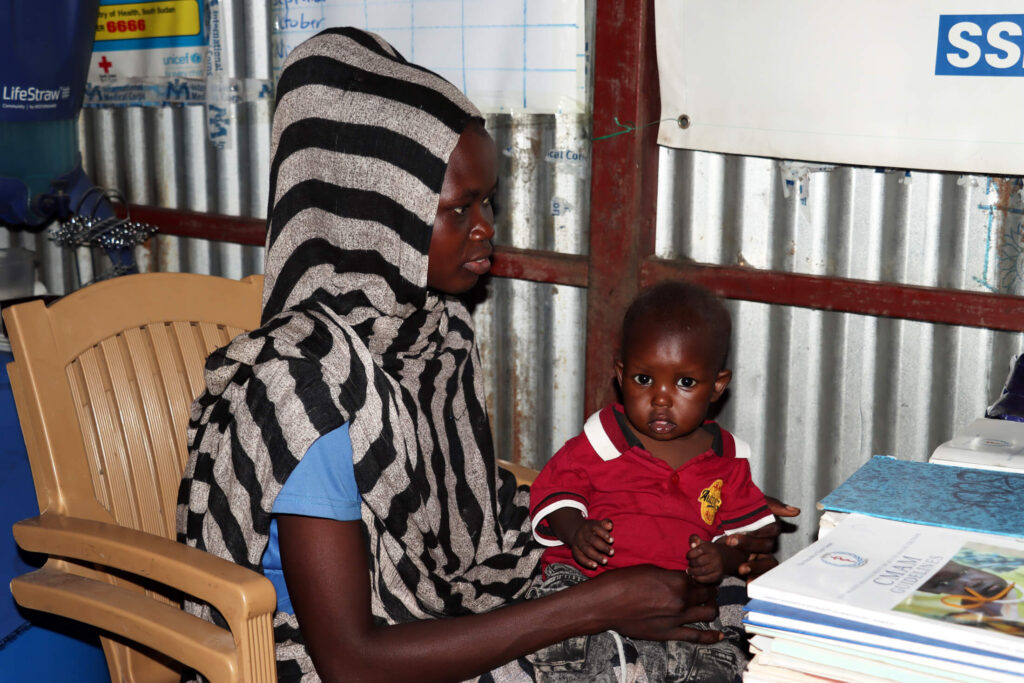In the youngest country in the world, people are resourceful, resilient and full of compassion, despite ongoing challenges—including conflict that is threatening to once again plunge the country into civil war. Since declaring independence in 2011, South Sudan has been subject to fighting, outbreaks of infectious disease and extreme weather events, such as recent flooding that devastated many communities. International Medical Corps’ South Sudan team—the vast majority of whom are local—continue to invest their time and effort in the health and well-being of the communities they serve.
Their inspiring dedication is shown through the programmes they implement across the country—including in Malakal, a city along the Nile River in the northern area of the country. Here are a few images of International Medical Corps’ work in Malakal.
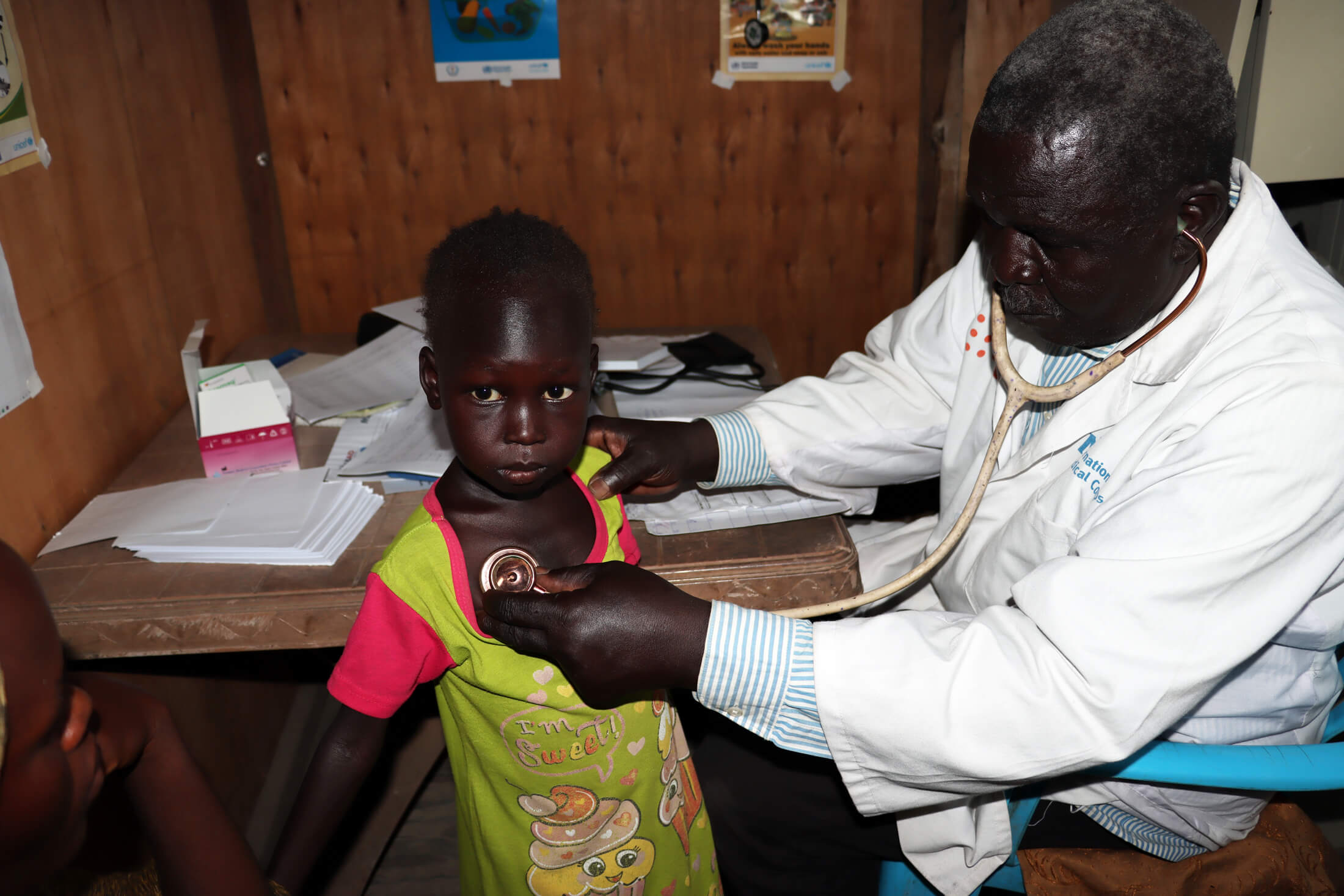
Clinical Officer Orach Adyiang examines a patient at an International Medical Corps clinic in Malakal.
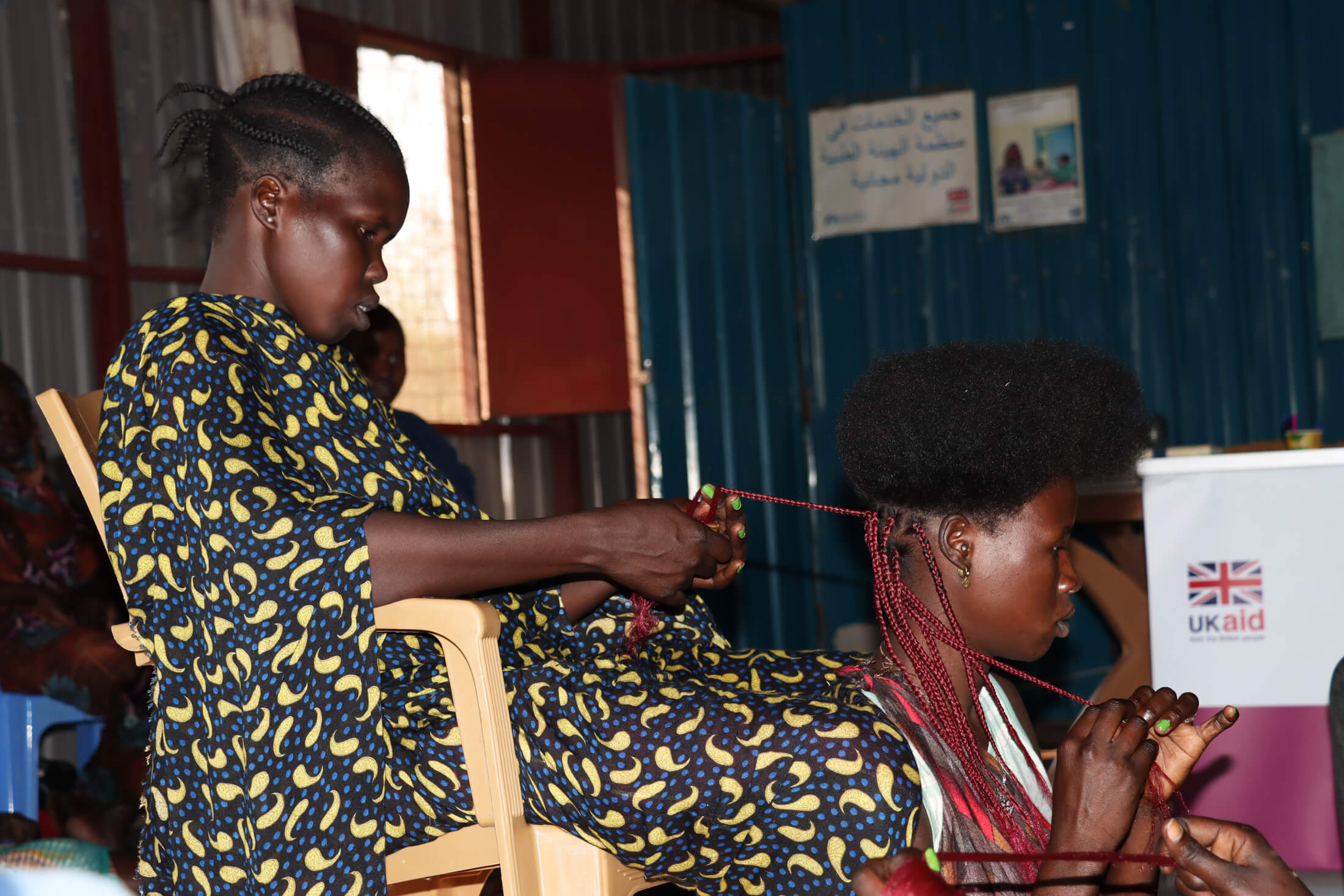
A woman adds a magenta-coloured hair extension while doing box braids—where individual braids are divided into square-shaped sections or boxes—for another woman at one of our women’s and girls’ safe spaces in Malakal.
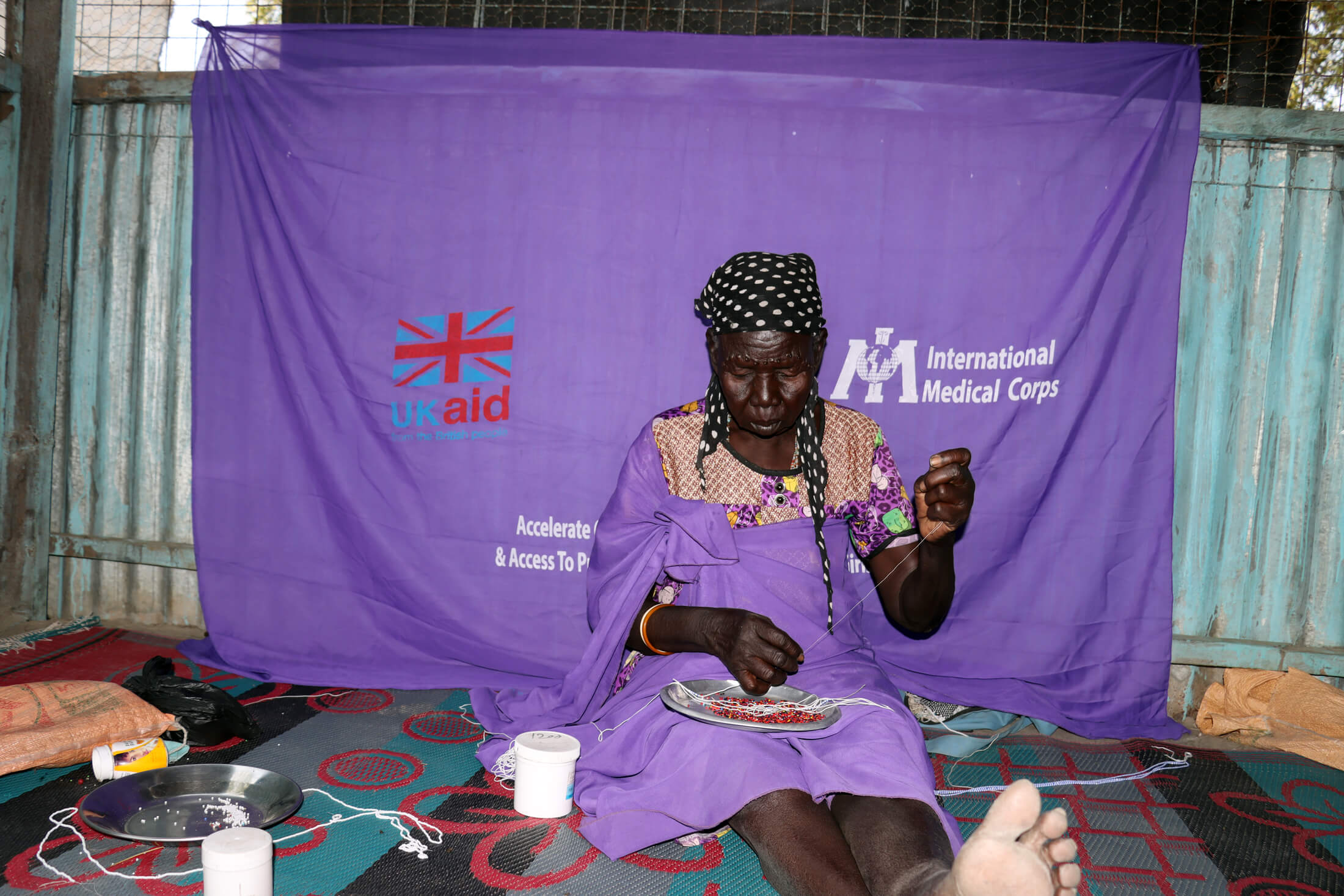
A woman works on a beaded craft at a women’s and girls’ safe space in Malakal.
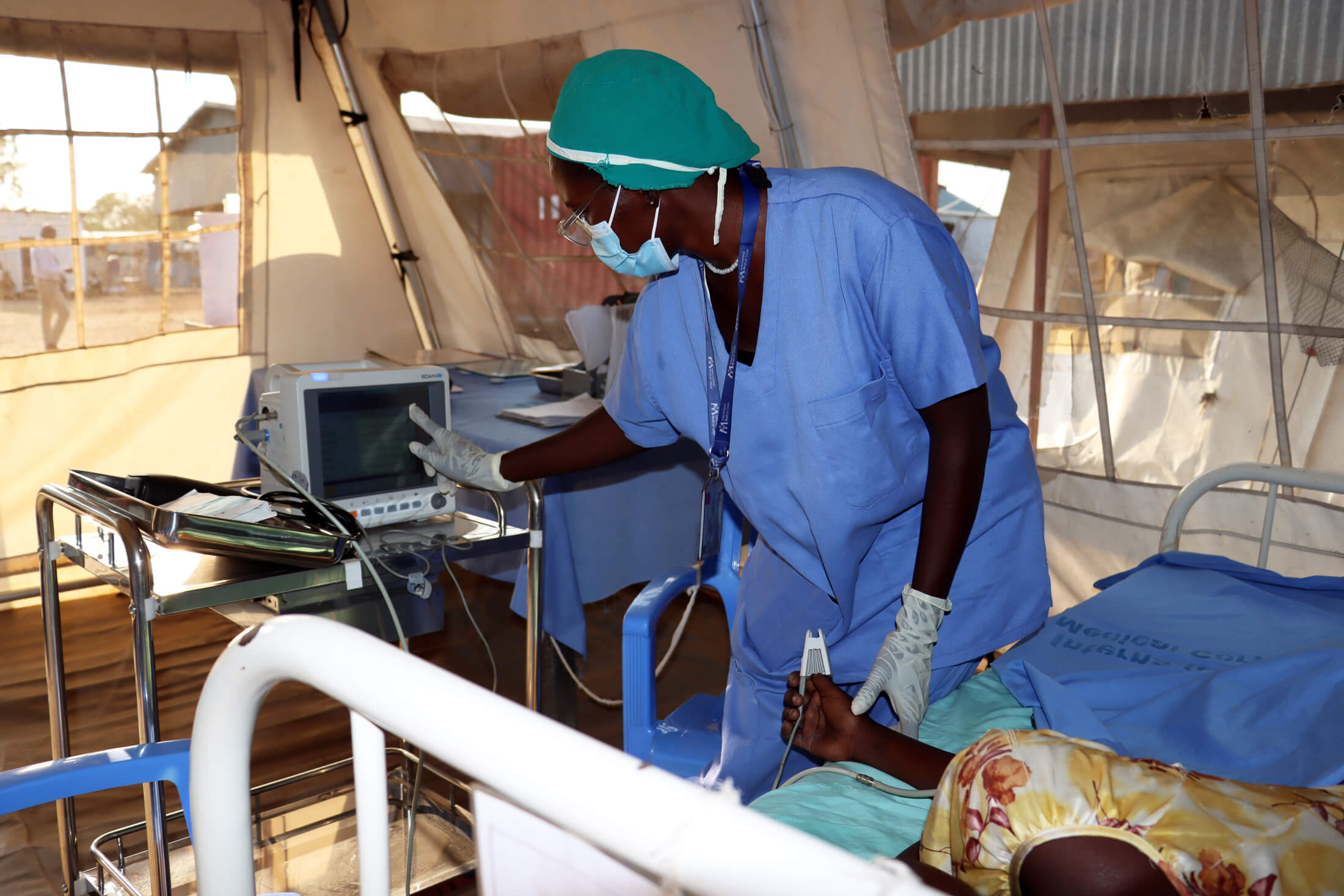
Aban Benjamin, a nurse at an International Medical Corps clinic in Malakal, checks on a woman who gave birth prematurely.
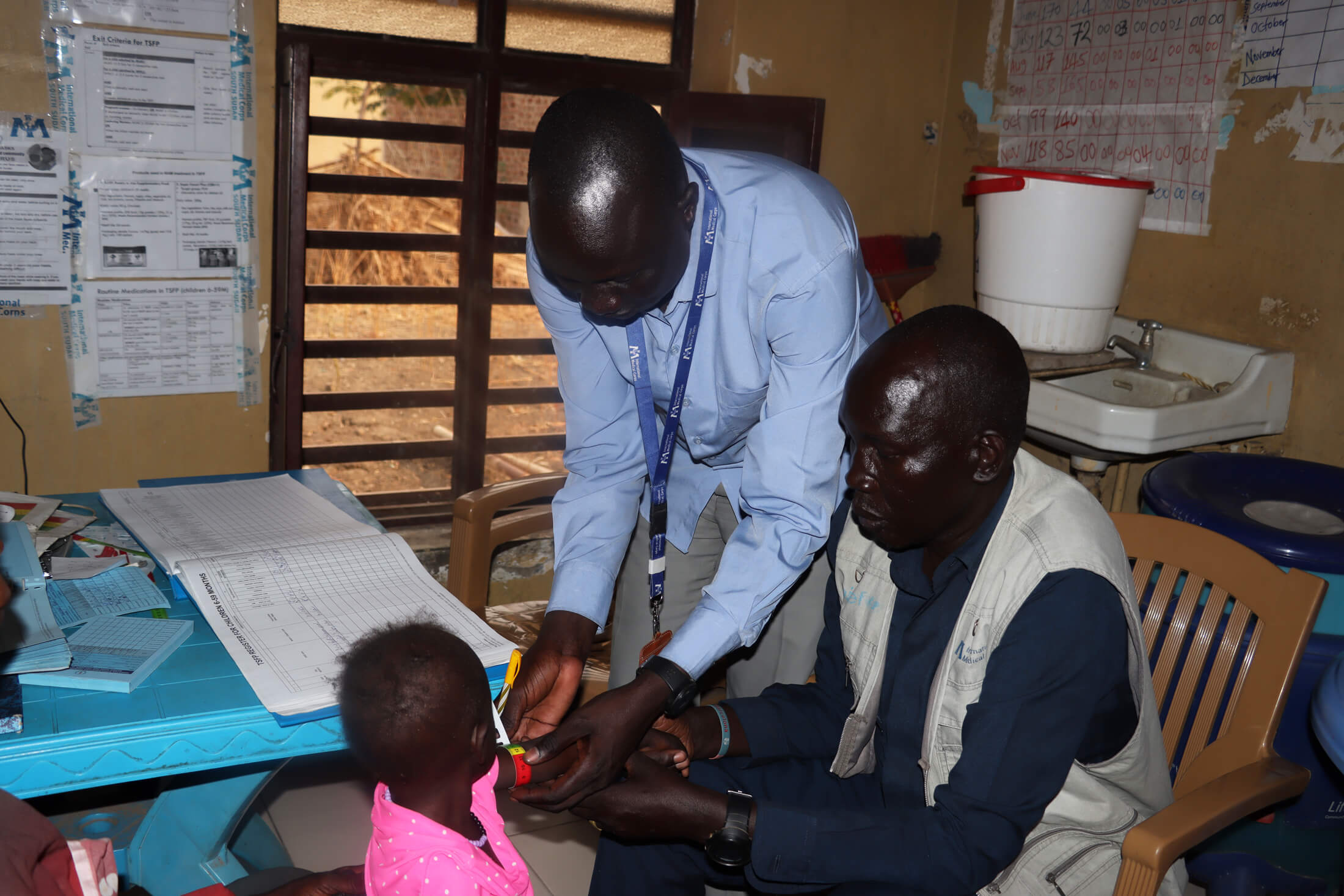
Nutrition Assistant Lazarus Yai Angue (standing) trains a new team member on how to take a mid-upper arm circumference (MUAC) measurement to help determine if this young patient is malnourished.
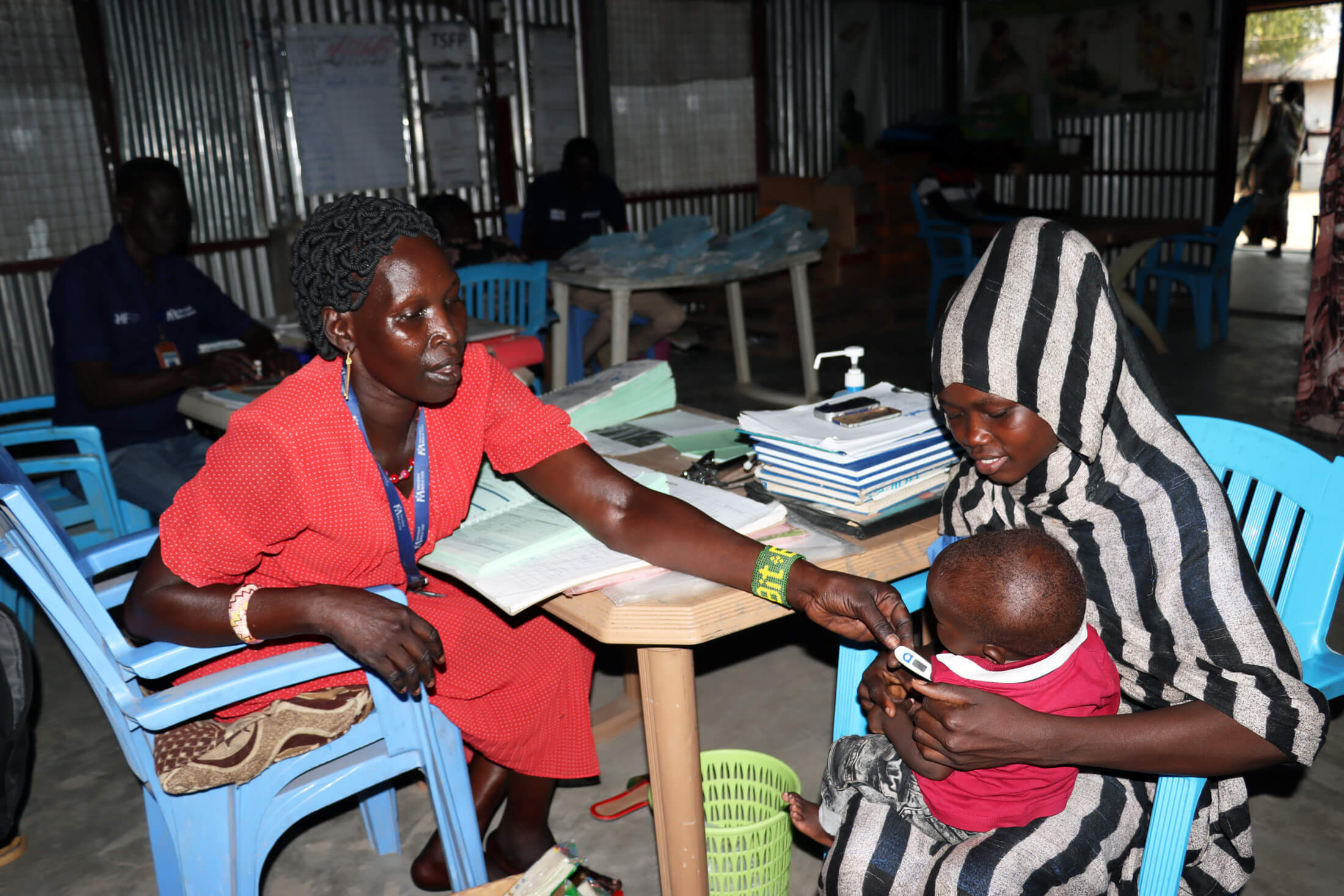
Nutrition Nurse Mary James meets with a mother and her child and takes the child’s temperature with a digital thermometer during a routine check-up.
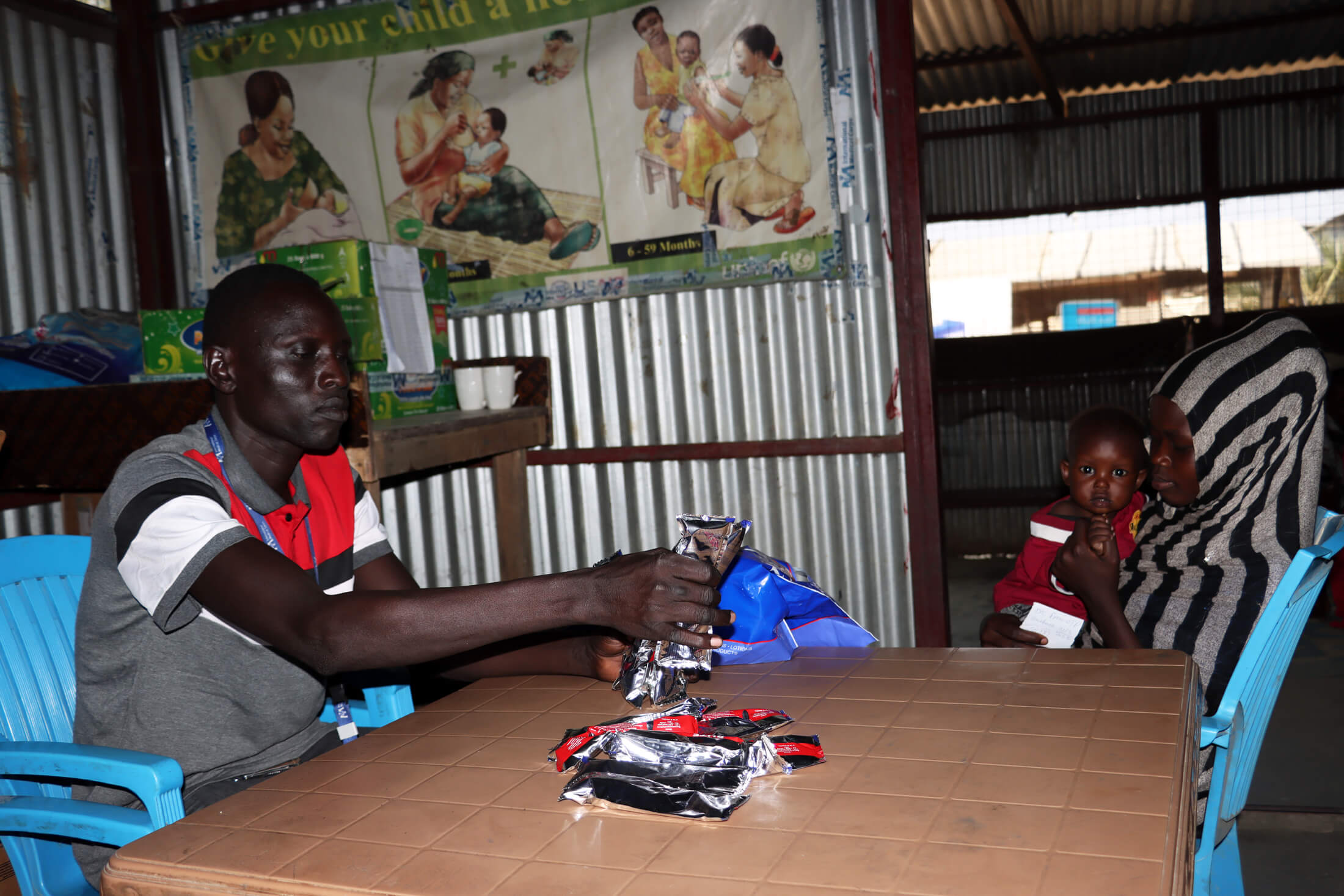
Nutrition Assistant Paulino Okony gives ready-to-use therapeutic food to a mother for her child, as part of the nutrition treatment that the child is receiving from International Medical Corps.
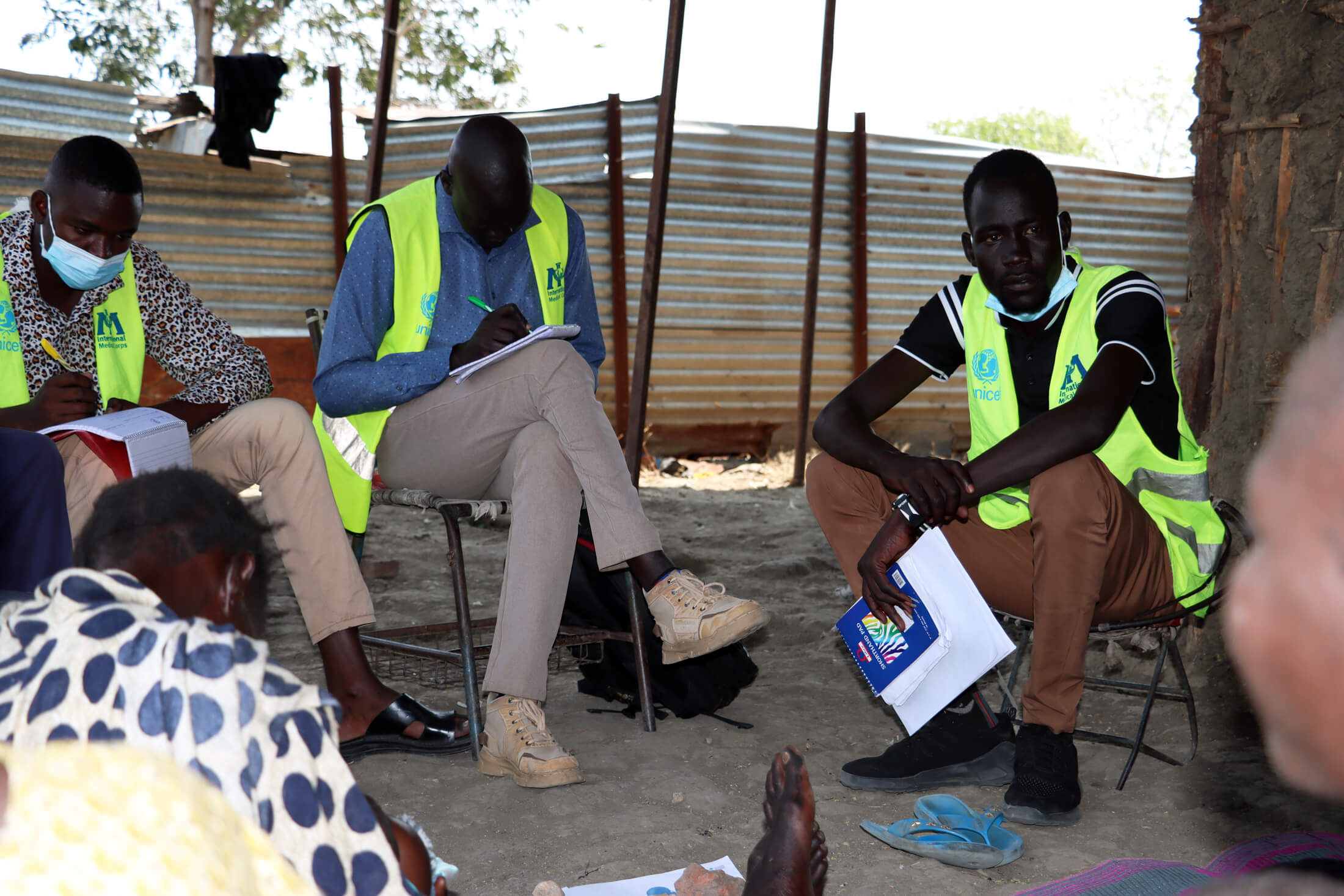
An International Medical Corps Nutrition team conducts a survey as part of their rapid nutrition-determinants assessments in the Assosa and Sora Jalaba payams (sub-counties) of Malakal county. This qualitative data helps to determine key factors for malnutrition there, and how we can address it.
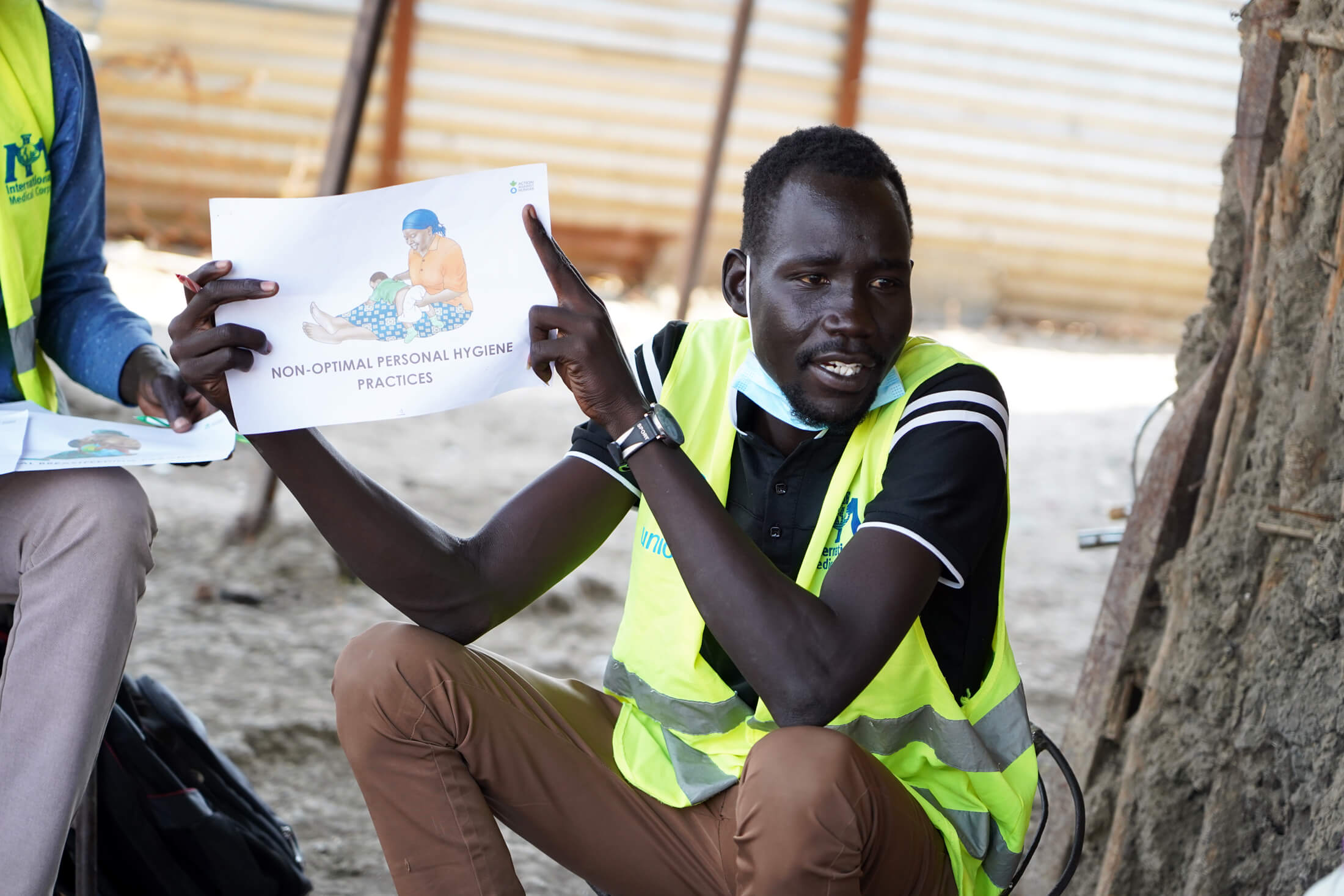
Many of the people we serve are not literate, so our team members conduct the surveys using illustrations and explanations of the questions.
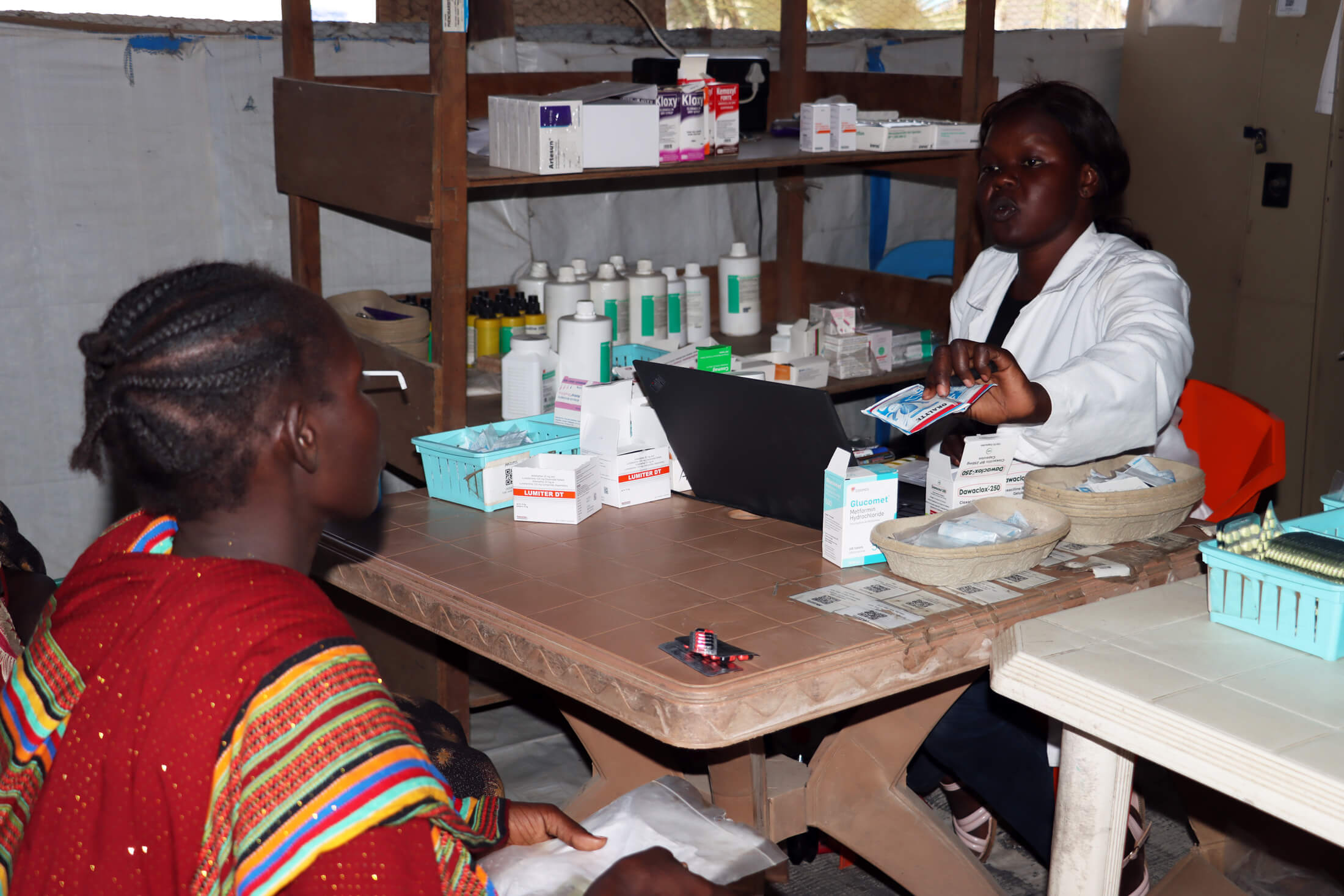
Pharmacist Suzan Victor Anon issues medicine to a patient in Malakal.
Learn more about our work in South Sudan, and donate to International Medical Corps today to help people around the world affected by conflict, disaster and disease.
